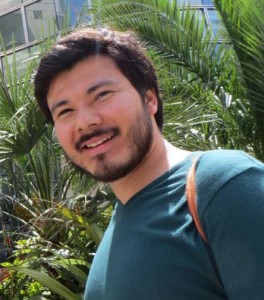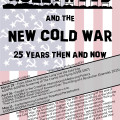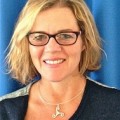 Pablo Cesar Santos-Pineda, originally from Los Angeles is currently in his last semester of the M.A. International Affairs program at The New School and is pursuing a concentration in Development Studies.
Pablo Cesar Santos-Pineda, originally from Los Angeles is currently in his last semester of the M.A. International Affairs program at The New School and is pursuing a concentration in Development Studies.
Pablo participated in the 2014 South Africa IFP where he interned with Section 27, a public interest law firm that seeks to influence, develop and use the law to protect, promote and advance human rights in South Africa, and conducted independent field work on land use reform.
How did you decide to attend the IA program at the New School?
Before GPIA, I worked as a paralegal at a NYC based law firm that dealt with resource nationalization, especially petroleum. A fellow co-worker of mine was currently attending GPIA and would often bring the insights that she learned in class to work. She also encouraged me to apply highlighting the New School’s focus on alternative pathways to policy making.
Why did you decide to go to SA on the IFP?
I decided to go to SA as I had been fascinated by the country’s transition from apartheid and how this transition has manifested into a more open and equal democracy. Also, I had been interested to examine SA’s relationship with the rest of Africa and how SA as a part of the BRICS had crafted a regional agenda for African “development.”
Did your experiences live up to your expectations?
Definitely. I had the opportunity to work alongside a great supervisor and partake in field research for the first time. I was also able to take advantage of Xhosa lessons while being there. Knowing the tiniest bit of Xhosa allowed me to engage with people there on a whole different level. Though, I wish I had travelled more outside the Western Cape province to get a wider perspective of the country.
What among your notions of South Africa evolved most during the IFP?
I had been fascinated by South Africa’s constitution, considered to be one of the most progressive in the world. However, despite enshrining into law socio-economic rights such as education, health etc., this has not translated into equitable or good quality outcomes. Section 27 and my independent research allowed me to investigate the factors that problematize a person’s ability to claim such rights. On top of that, there are racial, gender, income, sexual orientation dimensions that further complicate this picture. My work at Section 27 specifically aided me in understanding the strategies such organizations take in order to inform people on how to make claims on their constitution. One thing that stood out for me that Section 27 did was creating accessible and user-friendly public budget advocacy literature. Overall, I would say that the notion that a constitutional framework deeply informed by a social justice agenda translates into an open-access democratic society is greatly flawed. But I would say that South Africa is not the only country with this issue. It is just an example of how even extolling political, economic institutional changes and framing them somehow into the fabric of a nation’s laws is not sufficient if it were not for the exhaustive work of various actors from civil society.
What were your responsibilities at Section 27?
My main responsibility at this non-profit public litigation center was to conduct a health budget analysis at the provincial and national level. This greatly utilized my financial analysis skills that I had learned during undergrad and when I was a financial analyst/paralegal at a NYC international law firm. Thoko Madonko, my supervisor, would guide me in drafting reports that would look at 5-10 year expenditures in health, sanitation and education. I had the opportunity to be involved in the Section 27-led investigation into the Free State’s ongoing financial crisis. We uncovered financial gaps that placed in peril essential HIV/AIDS and Tuberculosis drugs and equipment.
What did your independent fieldwork entail?
I had long been interested in exploring land issues. As such, this entailed looking into at great detail rural /agricultural development. Therefore, I focused on the Western Cape Province’s wine industry as this has been touted as not only a local source for rural development, but international export recognition on par with the US, Australia and Chile to name a few. Through my research and interviews in SA, I uncovered two overarching themes: (1) lack of labor assembly at farms that usually resulted in gross labor violations, such as little pay, no benefits, firing at any time and sometimes eviction and (2) national and international policies that contribute almost to the aforementioned by confining the political reform “space” through which the industry can be changed. I found that these policies find themselves in an uneven environment in which Global North countries dictate the rate of agricultural reform progress.
Can you provide a concrete policy example from your research that allows the Global North to dictate the rate of agricultural reform?
One that stands out and has been examined quite significantly is how Global North countries greatly subsidize their own agricultural sectors while persuading developing countries to not follow similar practices. This leads to the inundation of food products from Global North countries that are cheaper to produce and have higher quality standards. It is in this environment in which South African wine producers find themselves and are forced to compete with American and European producers who are well capitalized and tend to have larger global market shares in wine production.
As your time at the New School comes to a close is there anything you wish you had done differently?
I wish I had taken more courses outside of GPIA. I took a course in the Politics department this past semester and it was one of the most challenging and exciting courses so far. It greatly aided me in shaping my research for the Master’s Thesis.
What is in store for you next?
Currently, I’m applying to various PhD programs here at the New School and elsewhere in NYC. I have chosen to study political science, but this could change to anthropology, sociology or history. My current interest is further exploring non-Western approaches to development discourse. In fact, I just wrote my Master’s thesis exploring African and Andean discourses on agricultural/rural development. In terms of a career, I’m still undecided. I think I will have a better idea once I’m done with my PhD program.




